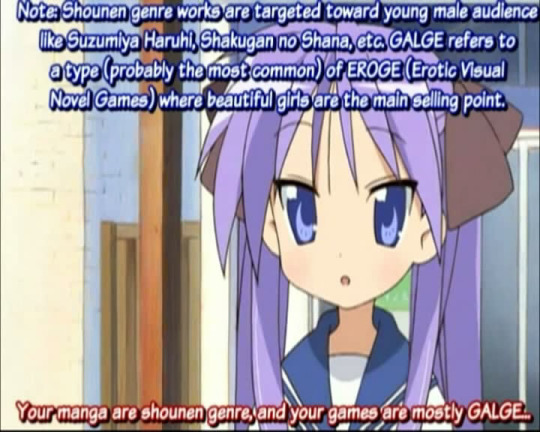#There was untranslated Japanese text on the wiki and they do fan translations on there
Explore tagged Tumblr posts
Text
I am so easily distracted by sad monster men with beautiful hair and claws and perhaps a large sword
#textpost#Hold one out in front of me like pspspspsp and you can get me to do tricks#Siegfried needs to be more fucked up he like drank evil dragon blood and you can't even tell#I can make him worse#I still don't know his lore outside of that lmao but I wanna get to it in the game and not just read it on the wiki#There was untranslated Japanese text on the wiki and they do fan translations on there#I had to close the tab I can't cheat on Guilty Gear sorry Granblue Fantasy gacha game#My grandma used to have an absolute unit of a Maine coon named Siegfried that hated everyone#and it's an uncommon enough name that I still associate it with that cat#We called him Ziggy lol#So when I see Siegfried Granblue I do think of Siegfried Cat pretty often#He was grey with tabby markings and had a huge poofy tail lol#The only time he ever let me pet him was when he got really old. Rest in peace you grumpy bastard [affectionate]....
54 notes
·
View notes
Text
We (somewhat rightly) mock the 2000's era fansub translation notes for their otaku fixations and privileging of trivia over the media, but they should be understood as serving their purpose for a bit of a different era in the anime fandom. Take this classic:

Like, its so obvious, right? Just say "pervert", you don't need the note! Which is true, for like a 'normie' audience member who just wants to watch A TV Show - but no one watching, uh *quick google* "Kamikaze Kaitou Jeanne" in 1999 is that person. The audience is weebs, and for them the fact that show is Japanese is a huge selling point. They want it to feel as 'anime' as possible; and in the west language was one of the core signifiers of anime-ness. 2004 con-goers calling their friends "-kun" and throwing in "nani?" into conversations was the way this was done, and alongside that a lexicon of western anime fandom terminology was born. Seeing "ecchi" on the screen is, to this person, a better viewing experience - it enhances their connection to otaku identity the show is providing, and reinforces their shared cultural lexicon (Ecchi is now a term one 'expects' anime fans to know - a truth that translator notes like this simultaneously created and reflected).
But of course your audiences have different levels of otaku-dom, and so you can't just say 'ecchi' and call it a day - so for those who are only Level 2 on their anime journey, you give them a translation note. Most of the translation notes of the era are like this - terms the fansubber thought the audience might know well enough that they would understand it and want that pure Japanese cultural experience, but that not all of them would know, so you have to hedge. The Lucky Star one I posted is a great example of that:

Its Lucky Star, the otaku-crown of anime! You desperately want the core text to preserve as much anime vocab as possible, to give off that feeling, but you can't assume everyone knows what a GALGE is - doing both is the only way to solve that dilemma.
This is often a good guideline when looking at old memetically bad fansubs by the way:

This isn't real, no fansub had this - it was a meme that was posted on a wiki forum in 2007. Which makes sense, right? "Plan" isn't a Japanese cultural or otaku term, so there is no reason not to translate it, it doesn't deepen the ~otaku connection~.
Which, I know, I'm explaining the joke right now, but over time I think many have grown to believe that this (and others like it) is a real fansub, and that these sort of arbitrary untranslations just peppered fansub works of the time? It happened, sure, but they would be equally mocked back then as missteps - or were jokes themselves. Some groups even had a reputation for inserting jokes into their works, imo Commie Subs was most notable for this; part of the competitive & casual environment of the time. But they weren't serious, they are not examples of "bad fansubs" in the same way.
This all faded for a bunch of reasons - primarily that the market for anime expanded dramatically. First, that lead to professionally released translations by centralized agencies that had universal standards for their subs and accountability to the original creators of the show. Second, the far larger audience is far less invested in anime-as-identity; they like it, but its not special the way its special when you are a bullied internet recluse in 2004. They just want to watch the show, and would find "caring" about translation nuances to be cringe. And since these centralized agencies release their product infinitely faster and more accessibly than fansubs ever did, their copies now dominate the space (including being the versions ripped to all illegal streaming sites), so fansubs died.
Though not totally - a lot of those fansub groups are still around! Commie Subs is still kicking for example. They either do the weird nuance stuff, or fansub unreleased-in-the-west old or niche anime, or even have pivoted to non-anime Japanese content that never gets international release. But they used to be the taste-makers of the community; now they are the fringe devotees in a culture that has moved beyond them. So fansubs remain something of a joke of the 90's and 2000's in the eyes of the anime culture of today, in a way that maybe they don't deserve.
11K notes
·
View notes